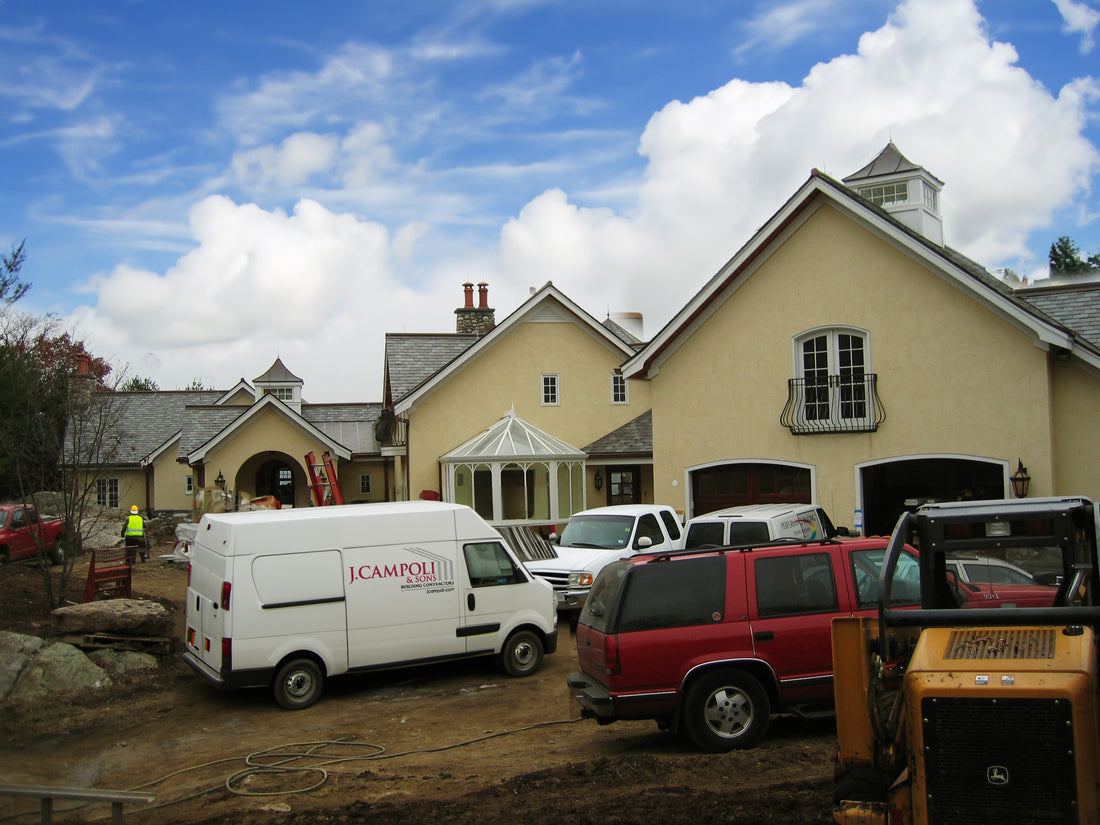Lots of people reach out to us with questions about potential projects on their home. We find that lots of these questions happen in the early design stage, before any specific layout or utility is determined for the project.
As an authority on construction in the Bergen County area, we know what it takes to get your residential construction project up and running. Whether you're thinking about a home renovation, addition, or building a new home, here's what you need to hire a contractor and get started.
A Concept
We've covered this at length in another article, but what your residential construction project needs first and foremost for gaining momentum is a strong concept of what you're looking to accomplish in your space.
You develop your dream concept by defining four different parts, which we call the Construction Cornerstones:
-
Utility - What exactly do you want to be able to do in the space once the project is complete?
-
Aesthetic - How do you want the space to look?
-
Budget - How much do you plan on spending for the work?
-
Schedule - When do you want the work finished?
Your concept determines the parameters for success on your project. If you can prioritize all four of those Construction Cornerstones throughout the following steps, your project will be a total success.
Once you've established a clear vision for the concept of your construction project, the next step is to develop a plan for the work.
A Plan
Construction plans, also referred to as drawings or blueprints, are the major design document for your construction project. If your work involves moving any walls, utilities, or fixtures, you will most likely need a plan, designed by a licensed architect. This will be required by the building department in your town, but it is also important information so that you and your contractor are on the same page about exactly what the project will entail.
If you need residential construction work in the Bergen County, NJ area, or surrounding counties, call us at 201-568-1100 and we can connect you with an experienced architect for your project.
Once you are in contact with an architect, they will talk to you about your concept. Discuss your Construction Cornerstones with them - architects have lots of experience with the residential construction process, and they know how to take your key criteria and develop it into an actionable plan. After understanding your concept, the architect will take a look at your current space, take measurements, and develop construction drawings for you. They will show you previsualizations and renderings of what to expect for the finished project. Take your time to understand all of the finished details, so that you can discuss any revisions with your architect.
Remember, any changes you make to the drawing save 10 times the time and money versus changes made while the project is underway in the field!
A Contractor
As the third Construction Cornerstone, your budget is a key component of residential construction project success. Now that you have a clear vision and construction drawings for your project, your contractor can take those drawings and gather important information, such as measurements, finishes, and fixtures, and compile all that information together into your project estimate.
You must have your work performed by a contractor in whom you are completely confident. Their experience performing construction work will determine the entire project. You want a contractor who is organized, thorough, transparent, and responsive. You can find a contractor with these qualities by asking them various questions, such as:
-
How recently have you performed a residential construction project like this?
-
How long have you been in business?
-
How much work do you perform in my area?
J. Campoli & Sons has performed thousands of successful residential construction projects in Bergen County and the surrounding counties. To have us perform residential construction work on your home, book a residential preconstruction consultation.
A Permit
Now that you have a contractor, a drawing, and a concept, you're ready to start, right?
Not just yet.
You need a building permit in order to start work. Building permits are issued by your town's building department, and are basically a certificate that says you are planning on doing construction work in your home that will result in a safe and legal living environment.
Your contractor can apply for your building permit - a process known as "permit expediting" - or you can apply as the homeowner. Regardless of who applies, you will need to fill out a few forms with your information on them, and a few copies of any construction drawings you may have created.
In order to file for a building permit, your plan will be reviewed by your town's building department. They will take a few copies of your construction documents - signed and sealed by your architect to ensure that a licensed professional created them - and the construction official will review them to make sure you're doing safe modifications to your home. They will have the pertinent subcode officials - plumbing, electrical, fire, etc. - review the drawing as well, to ensure that all the work being performed is safe and documented. After review, the building department will issue your permit for a fee.
Once the work is underway on your home, the building inspector and subcode officials will perform inspections to make sure that the work is being performed safely, and the project is up to code.
You're On Your Way
Now that you have these items in place, you're good to go! Your residential construction project will be a total success.
If you need construction work performed on your house in the Bergen County, NJ area, or the surrounding counties, be sure to contact J. Campoli & Sons by booking a residential preconstruction consultation. We have been performing construction work in Bergen County since 1946, and would be delighted to have the opportunity to work on your home.

